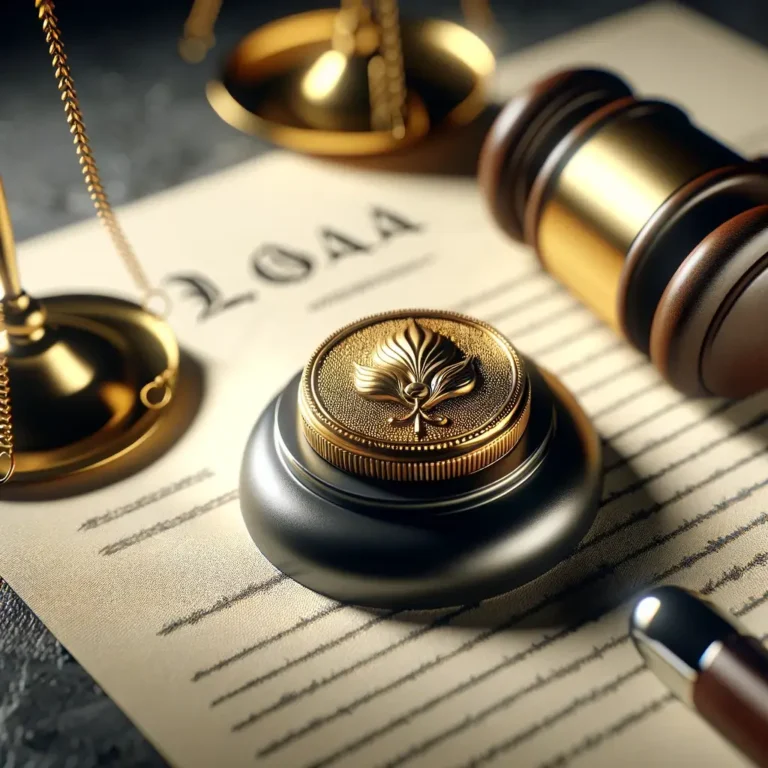Understanding The Legal Process For Changing Your Name in India
Changing your name can be a significant step in your life for various reasons, including marriage, divorce, personal preference, or religious reasons. In India, the process is straightforward but requires following specific legal steps to ensure your new name is officially recognized. This guide provides a simple overview of the legal process for changing your name under Indian law, aimed at helping you navigate the process with ease.
Why Change Your Name?
Before diving into the legalities, it’s crucial to understand the reasons behind a name change. People choose to change their names for various reasons, such as aligning their name with their gender identity, after marriage or divorce, or simply because they prefer a new name. Recognizing your reason will guide you through the process with a clear objective.
The Legal Framework in India
In India, the legal framework for changing your name is governed by the Central Gazette, the official publication of the Government of India. The process involves a few key steps, which, when followed correctly, legally recognize your new name across all official documents and records.
Step 1: Affidavit Submission
The first step in legally changing your name is to create an affidavit stating your intent to change your name. This document should include your old name, new name, and the reason for the name change. It must be sworn before a Notary Public or a Magistrate, signifying your legal commitment to your new name.
Step 2: Newspaper Publication
After creating the affidavit, you must publish an announcement in a local and a national newspaper. This publication serves as a public notice of your name change, allowing anyone with objections to come forward. The announcement should include your old name, new name, and address.
Step 3: Gazette Notification
The final and most crucial step is to apply for a name change in the Gazette of India. You must send a copy of the newspaper publication, the affidavit, and a ‘Deed Changing Surname Form’ to the Department of Publication. Upon verification, your name change will be published in the Gazette of India, officially recognizing your new name.
Documents Required
To complete the name change process, you will need the following documents:
- Identity proof (Aadhar card, PAN card, etc.)
- Address proof (Utility bill, bank statement, etc.)
- Affidavit of name change
- Newspaper publication
- Application for name change in the Gazette of India
- Applicable fees
After The Name Change
Once your name change is published in the Gazette of India, you must update your name across all your official documents, including your passport, driver’s license, bank accounts, and any other records. This step ensures your new name is reflected in all aspects of your life, completing the name change process.
Conclusion
Changing your name in India, while a process, is a path many individuals take for various personal reasons. By following the legal steps outlined above, you can ensure your new name is recognized and accepted across all official domains. Remember, the key to a smooth name change process is attention to detail and patience as you navigate through the legal requirements.
FAQs on Changing Your Name in India
1. Can anyone change their name in India?
Yes, any Indian citizen can legally change their name, provided they follow the prescribed legal process.
2. What is the first step to legally change my name?
The first step is to create and notarize an affidavit stating your old name, new name, and the reason for the change.
3. Where should I publish my name change?
You must publish your name change in one local and one national newspaper.
4. Is publishing in the Gazette mandatory for a name change?
Yes, to legally recognize your new name across India, Gazette publication is mandatory.
5. How long does the Gazette publication process take?
The process can take anywhere from 2 to 6 months, depending on various factors.
6. What documents are needed for the Gazette publication?
You need an affidavit, newspaper clippings, identity proof, address proof, and the application form for Gazette publication.
7. Can I change my name online in India?
While you can download forms online, the complete process involves offline steps like notarization and sending documents to the Gazette office.
8. Is there a fee for changing your name?
Yes, there are nominal fees for notarization, newspaper publication, and Gazette notification.
9. Can I change my child’s name?
Yes, parents can change their minor child’s name following the same legal process.
10. Do I need a lawyer to change my name?
No, a lawyer is not required, but you may consult one for guidance.
11. How do I update my new name on my Aadhar card?
After Gazette publication, apply for an Aadhar update with your Gazette certificate as proof of name change.
12. Will my old records be updated automatically?
No, you must manually update your name on all legal documents and records.
13. Can I revert to my old name?
Yes, by following the same legal process, you can revert to your old name.
14. Is the name change process different for marriage?
For marriage, the process is simplified; publishing in the Gazette might not be mandatory if you provide a marriage certificate.
15. How do I prove my name change?
The Gazette notification serves as the legal proof of your name change.
16. Can I change my name on my passport without Gazette notification?
No, for a passport name change, Gazette notification is mandatory.
17. What if I make a mistake in the application?
You should carefully correct any mistakes before submission, as corrections post-publication are cumbersome.
18. Can I change my entire name?
Yes, you can change your first, middle, and last name following the legal process.
19. Is there a limit to how many times I can change my name?
No legal limit exists, but frequent changes might raise questions or complications.
20. Do I need to notify someone after changing my name?
Yes, you must update your new name with all government and private entities where you are registered.
21. Can foreigners change their name in India?
Foreigners need to follow their country’s laws for name changes, but they can update their Indian records with a legally recognized name change.
22. What is an affidavit for name change?
It’s a legal document declaring your intent to change your name, sworn before a Notary or Magistrate.
23. How important is the reason for changing a name?
The reason is essential for the affidavit and for personal records, but usually does not affect the legal process.
24. Can I change the spelling of my name?
Yes, even minor changes like spelling corrections follow the same legal process.
25. Does a name change affect my property or legal rights?
No, it does not affect your rights, but you must update your name on all legal documents to avoid complications.
26. What to do if my name change is not published in the Gazette?
Follow up with the Gazette office; delays or rejections usually require clarification or additional documentation.
27. Can I use my new name before Gazette publication?
It’s advisable to use your new name only after Gazette publication to avoid legal discrepancies.
28. How do I correct a mistake in the Gazette notification?
You must apply for a correction, which involves a similar process to the original name change.
29. What happens to my old documents?
Your old documents remain valid but must be accompanied by the Gazette notification until updated.
30. Is it possible to change my name for numerology or astrology reasons?
Yes, any personal reason, including numerology or astrology, is valid for a name change, following the same legal process.
















